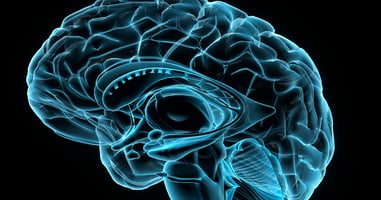The Bipolar-Schizophrenia Network on Intermediate Phenotypes—consisting of institutions that...
Hippocampus Changes May Be Factor in Positive Symptoms of Schizophrenia
 |
The finding has clinical implications, the lead scientist, Kolja Schiltz, M.D., an adjunct associate professor at Otto von Guericke University in Magdeburg, Germany, told Psychiatric News. The left hippocampus, and particularly its CA1 subfield, could be monitored longitudinally in a patient, he explained. If the hippocampus and CA1 subfield became more deformed, it might indicate that the patient needs more efficacious antipsychotic treatment.
Psychiatric News has reported on research into other factors associated with schizophrenia in addition to hippocampus size, such as genes or the parasite Toxoplasma gondii. Read that coverage here and here. For another study on genetic links to schizophrenia, see the American Journal of Psychiatry.
(Image: Yakobchuk Vasyl/Shutterstock.com)




